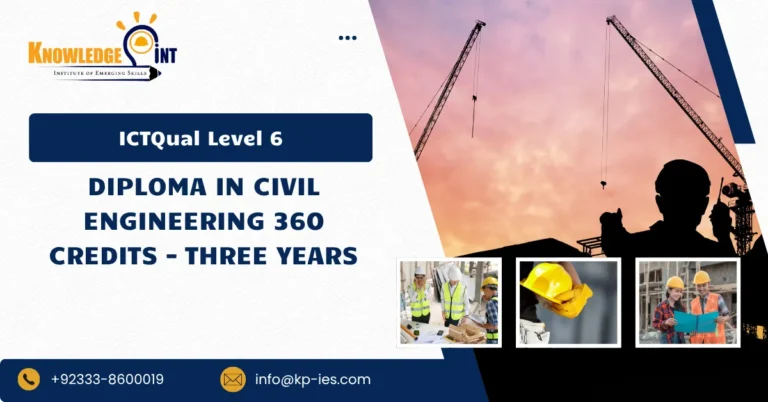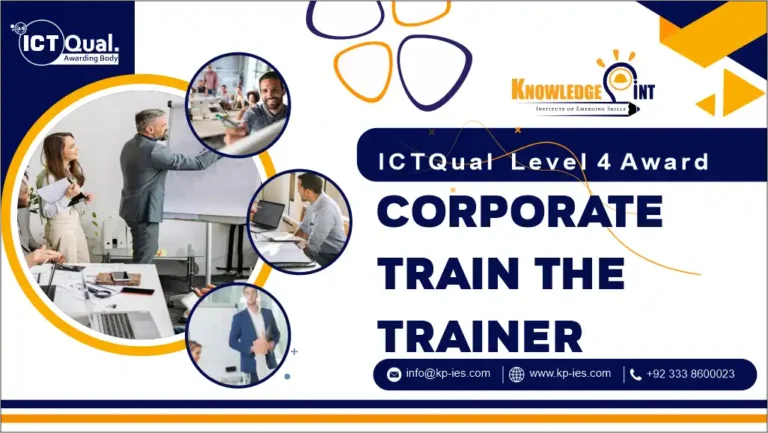In the ever-evolving landscape of vocational education and training, effective assessment is crucial for ensuring learners achieve their potential and meet industry standards. For those looking to enhance their skills in assessing vocationally related achievement, the OTHM Level 3 Award in Assessing Vocationally Related Achievement offers a powerful and practical pathway. This award is designed to equip you with the necessary skills and knowledge to become a proficient assessor, enhancing your professional qualifications and opening doors to various career opportunities.
The OTHM Level 3 Award in Assessing Vocationally Related Achievement is a specialized qualification aimed at developing the skills required for assessing vocational learning. This award is ideal for those working or aspiring to work in roles that involve evaluating learners’ competencies and achievements in vocational settings, such as training providers, educational institutions, and industry-specific organizations.
The OTHM Level 3 Award in Assessing Vocationally Related Achievement is a valuable qualification for those looking to excel in the field of vocational assessment. It provides the skills and knowledge necessary to effectively evaluate and support learners’ achievements, making it an essential credential for educators, trainers, and assessors. Whether you aim to advance your career, enhance your professional skills, or pursue further qualifications, this award offers a robust foundation for achieving your goals.
Course Overview
The OTHM Level 3 Diploma in Business Management consists of 6 mandatory units which are as follows.
The future progression of the OTHM Level 3 Award in Assessing Vocationally Related Achievement can lead learners towards several pathways, depending on their career goals and aspirations in the field of law and related sectors. Here are some potential avenues of progression:
Understanding the Principles and Practices of Assessment
- Fundamental Assessment Concepts:
- Develop a comprehensive understanding of the fundamental principles and concepts of assessment, including its purpose, types, and functions within vocational education and training contexts.
- Learn about different assessment methodologies and their application in evaluating learner performance.
- Assessment Frameworks and Standards:
- Gain knowledge of assessment frameworks, standards, and criteria relevant to vocational qualifications.
- Understand how to align assessments with industry standards, learning outcomes, and regulatory requirements.
- Planning and Designing Assessments:
- Acquire skills in planning and designing assessments that are valid, reliable, and fair.
- Learn to create assessment tools and instruments that effectively measure learners’ skills, knowledge, and understanding.
- Assessment Techniques and Strategies:
- Explore various assessment techniques and strategies, including formative and summative assessments, practical assessments, and theoretical evaluations.
- Understand how to select and apply appropriate techniques based on the assessment objectives and learner needs.
- Legal and Ethical Considerations:
- Learn about the legal and ethical considerations in assessment, including issues related to confidentiality, bias, and fairness.
- Understand the importance of maintaining integrity and professionalism in the assessment process.
- Feedback and Improvement:
- Develop skills in providing constructive and actionable feedback to learners.
- Learn how to use feedback to support learner development and improve future assessments.
Assess Vocational Skills, Knowledge, and Understanding
- Assessment of Practical Skills:
- Gain proficiency in assessing vocational skills through practical demonstrations, observations, and hands-on tasks.
- Learn to evaluate the effectiveness and competency of learners in performing specific vocational tasks.
- Assessment of Theoretical Knowledge:
- Develop skills in assessing learners’ theoretical knowledge related to their vocational field.
- Understand how to design and conduct assessments that accurately measure learners’ understanding of key concepts and principles.
- Evaluation of Understanding:
- Learn to assess learners’ comprehension and application of vocational knowledge in real-world scenarios.
- Develop techniques for evaluating learners’ ability to apply theoretical knowledge to practical situations.
- Use of Assessment Tools and Resources:
- Become familiar with various assessment tools and resources, such as rubrics, checklists, and assessment software.
- Learn how to select and use appropriate tools to enhance the accuracy and efficiency of the assessment process.
- Assessment and Learning Outcomes:
- Understand how to link assessment activities to specific learning outcomes and objectives.
- Learn to measure and evaluate how well learners achieve the intended learning outcomes through various assessment methods.
- Continuous Improvement:
- Develop the ability to review and reflect on the assessment process to identify areas for improvement.
- Learn to make adjustments and enhancements to assessment practices based on evaluation and feedback.
These learning outcomes ensure that individuals completing the OTHM Level 3 Award in Assessing Vocationally Related Achievement will have a thorough understanding of assessment principles and practices, as well as the skills to effectively assess vocational skills, knowledge, and understanding. This foundational knowledge is crucial for developing effective assessment strategies and supporting learner success in vocational education and training.
Course Benefits of the OTHM Level 3 Award in Assessing Vocationally Related Achievement :
1. Specialized Expertise
- Auditing Proficiency: Gain specialized knowledge and skills in auditing energy management systems according to the ISO 50001:2018 standard.
- Industry Recognition: Earn a globally recognized qualification that demonstrates your proficiency as an energy management systems auditor.
2. Career Advancement
- Expanded Career Opportunities: Qualify for roles such as Lead Energy Auditor, Energy Management Consultant, or Compliance Officer.
- Higher Earning Potential: Enhance your value to employers and increase your earning potential with specialized expertise in energy management auditing.
3. Industry-Relevant Skills
- Practical Application: Acquire practical skills and techniques for planning, conducting, and documenting energy management system audits.
- Effective Communication: Develop communication skills to interact with auditees, audit teams, and stakeholders effectively.
4. Contribution to Sustainability
- Promotion of Energy Efficiency: Play a key role in promoting energy efficiency and reducing environmental impact within organizations.
- Support for Sustainable Practices: Assist organizations in implementing and maintaining energy management systems that support sustainability goals.
5. Quality Assurance
- Compliance Assurance: Help organizations achieve compliance with ISO 50001:2018 requirements and other relevant regulatory standards.
- Risk Mitigation: Identify areas of non-conformance and provide recommendations for corrective actions to mitigate risks.
6. Continuous Professional Development
- Lifelong Learning: Engage in continuous professional development by staying updated with the latest developments and trends in energy management auditing.
- Networking Opportunities: Connect with industry professionals, auditors, and experts, expanding your professional network and opportunities.
7. Organizational Benefits
- Improved Performance: Contribute to the improvement of organizational energy performance through effective auditing and recommendations for continuous improvement.
- Enhanced Reputation: Help organizations build a positive reputation for their commitment to energy management and sustainability practices.
8. Personal Growth
- Leadership Development: Develop leadership skills to effectively manage audit teams, delegate tasks, and ensure audit objectives are met.
- Confidence Boost: Gain confidence in your abilities as an energy management systems auditor through practical training and hands-on experience.
Completing the OTHM Level 3 Award in Assessing Vocationally Related Achievement opens various pathways for career development and further education. Here are some potential future progressions for individuals who have completed this qualification:
Academic Advancement
- Higher-Level Assessing Qualifications:
- OTHM Level 4 Award in Assessing Vocationally Related Achievement:
- Progress to a higher-level qualification to gain advanced skills and knowledge in assessment. The Level 4 Award provides deeper insights into assessment practices and strategies.
- OTHM Level 5 Award in Assessing Vocationally Related Achievement:
- For those seeking even more advanced expertise, the Level 5 Award offers specialized knowledge in assessing vocational achievement, preparing for roles with increased responsibility.
- OTHM Level 4 Award in Assessing Vocationally Related Achievement:
- Teaching and Training Qualifications:
- Level 4 Certificate in Education and Training (CET):
- Complement your assessment skills with teaching qualifications to enhance your role as an educator or trainer.
- Level 5 Diploma in Education and Training (DET):
- Pursue further qualifications to become a more advanced educator and assessor, with a focus on delivering high-quality teaching and learning experiences.
- Level 4 Certificate in Education and Training (CET):
- Bachelor’s Degree Programs:
- Bachelor’s Degree in Education:
- Enroll in undergraduate programs related to education or training to broaden your academic background and career opportunities.
- Bachelor’s Degree in Human Resources Management:
- Pursue a degree in HR to integrate your assessment skills with broader HR functions, including recruitment, performance management, and employee development.
- Bachelor’s Degree in Education:
Professional Development
- Advanced Assessing Roles:
- Senior Assessor or Lead Assessor:
- Move into more senior roles within assessment and training, taking on responsibilities such as managing assessment teams or overseeing large-scale assessment programs.
- Assessment Consultant:
- Work as an independent consultant, advising organizations on assessment practices, developing assessment frameworks, and ensuring compliance with industry standards.
- Senior Assessor or Lead Assessor:
- Specialized Certifications:
- Professional Assessors’ Certifications:
- Obtain certifications from professional bodies that focus on specific areas of assessment, such as performance assessment, competency-based assessment, or e-assessment.
- Project Management Certifications:
- Enhance your skills with project management qualifications, which can be valuable in managing assessment projects and initiatives.
- Professional Assessors’ Certifications:
- Continued Professional Development (CPD):
- Workshops and Training:
- Participate in CPD activities such as workshops, seminars, and conferences to stay updated with the latest trends and best practices in assessment and vocational education.
- Workshops and Training:
Career Opportunities
- Vocational Assessor:
- Take up roles as a vocational assessor in various sectors, including education, industry, and professional training organizations. Responsibilities include assessing learners’ competencies and providing feedback.
- Trainer and Educator:
- Work as a trainer or educator, utilizing your assessment skills to deliver effective training programs and evaluate learner progress.
- Quality Assurance and Compliance:
- Get involved in quality assurance roles that ensure assessment practices meet regulatory and industry standards. This includes roles such as quality assurance manager or compliance officer.
- Educational Program Development:
- Contribute to the development of educational programs and assessment frameworks, ensuring they meet the needs of learners and industry requirements.
- Consultancy and Advisory:
- Offer consultancy services to educational institutions, training providers, and organizations on best practices in assessment and vocational training.
The OTHM Level 3 Award in Assessing Vocationally Related Achievement serves as a valuable foundation for advancing in the field of vocational assessment and education. By pursuing higher-level qualifications, engaging in professional development, and exploring various career opportunities, you can build on the skills and knowledge gained from this award to achieve your professional goals and make a significant impact in the field of vocational training and assessment.







